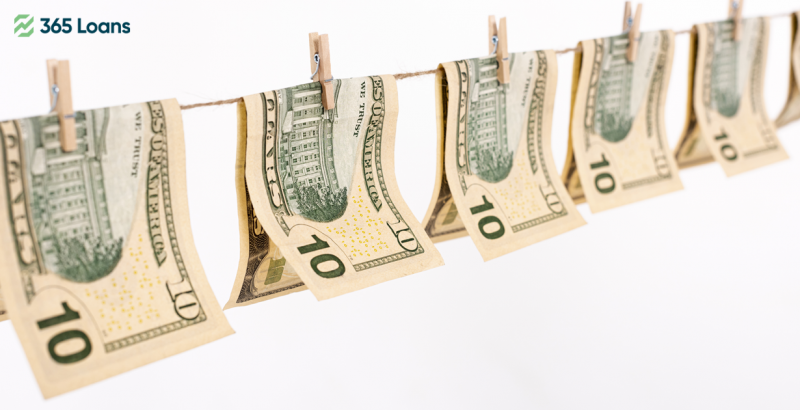Introduction
We all know that investing is intimidating. There are many things to consider: How much money do I have? What should I invest in? How is this investment a good one? What’s better, buying stocks or real estate? And how can you avoid scams? In this article, we’ll break down all these questions and more so that you can start thinking about which types of investments might be right for your life.
Put a little into cryptocurrency for high potential returns.
Cryptocurrency is a high-risk investment.
Cryptocurrency is not regulated by the SEC or any other government agency, and any bank or government does not back it. Cryptocurrency can be lost or stolen from your account, so you should take steps to protect yourself from fraud and theft before investing in this type of asset class.
The FDIC does not insure investments in cryptocurrency markets like Bitcoin, Etherium or Litecoin because they are not considered “securities” under federal law (although some states may consider them securities). Suppose you lose money due to fraud or theft on a cryptocurrency exchange. In that case, there needs to be more recourse for recovering funds. If recourse is available in court, it is likely limited, given that most exchanges operate outside regulatory jurisdictions worldwide.
The lack of regulation is also a concern. Most cryptocurrency exchanges are not regulated by the SEC or any other government agency, so you don’t have the same protection from fraud and theft as you would with a traditional investment like stocks or bonds. Unlike other investments, cryptocurrency doesn’t have an asset value—no gold behind it can be sold if something goes wrong.
Buy an income property.
You can invest in real estate by purchasing a rental property. This is a great way to build wealth, diversify your portfolio and create passive income.
- Real estate is one of the best investments for building wealth over time because it’s an asset that grows in value over time. As long as people live on earth, there will be demand for housing; therefore, real estate prices tend to increase over time (though they fluctuate).
- When renting out your property, you’ll receive monthly payments from tenants which can be used towards paying off loans or used as additional income toward other investments such as stocks or bonds.*
The key to building wealth through real estate is to buy a property that generates positive cash flow. This means that the monthly rent from tenants will cover all of the expenses (mortgage payment, taxes, and insurance) as well as provide some additional profit.
Try real estate investing for rental income.
Consider real estate if you’re looking for a way to invest your money that can provide passive income. You could buy a property, rent it out, fix it up, and sell it for more money than what you paid. You can also invest in real estate through REITs (real estate investment trusts). These companies invest in properties across the country and pay dividends based on their investments’ performance. So they’re perfect if you want to avoid managing your portfolio of properties but still want some exposure to this asset class!
Real estate is a great investment because it’s hard to lose money. If you buy the right property at the right price, you’ll be able to rent it out and keep the income coming in even if prices fall–and if they rise, you’ll be able to sell your property for more than what you paid for it!
Consider low-risk bonds.
- Bonds are debt instruments that pay interest at regular intervals.
- Bonds have a fixed interest rate, which means you can predict how much your bond will make.
- You can buy bonds with a minimum investment of $1,000 and keep them for as long as you like (or until maturity).
Bonds are a good way to diversify your portfolio because they’re less volatile than stocks but still provide some growth potential over time–and if interest rates go up in the future, this could mean higher returns on your investment!
Invest in individual stocks.
If you’re looking to invest in individual stocks, be careful. It’s easy to get caught up in the excitement of buying a company’s stock and then watch it fall-and fall some more. To minimize your risk, invest in a mix of stocks from different industries and companies with diverse financials (i.e., profits). Look at the company’s history: Does it have consistent growth? If so, that could indicate future success for its stock price.
Investing in individual stocks is one way you can use $5000 – but only if you understand exactly what your money will go toward and why those particular investments are smart choices for your portfolio overall. If you’re looking to invest in individual stocks, be careful. It’s easy to get caught up in the excitement of buying a company’s stock and then watch it fall – and fall some more. To minimize your risk, invest in a mix of stocks from different industries and companies with diverse financials (i.e., profits). Look at the company’s history: Does it have consistent growth?

Takeaway:
Whether you invest in stocks, bonds, real estate, or a combination of all three, you can’t go wrong with any of these options. If you’re looking for an easy way to start investing without needing enormous capital, $5k is an ideal balance between saving up and getting started right away. Once you’ve decided on an investment plan and made your first deposit, don’t forget about tax implications: Depending on how much interest or revenue comes in each year (which will vary depending on which type of account(s) you use), it might be necessary for investors who make more than $500/month from their investments to pay taxes on those earnings.
Conclusion
Your best investment depends on your goals, risk tolerance, and other factors. Our advice is to start with a small amount of money, invest in something that interests you and track its performance over time. If it works out well, consider investing more money into this type of investment!







